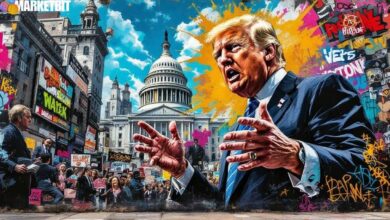CFTC Opens Offshore Crypto Trading to U.S. Investors

- The CFTC allows offshore crypto exchanges to register as FBOTs.
- Enables U.S. traders legal access to offshore markets.
- Potential increase in U.S.-based crypto liquidity and volume.
The Commodity Futures Trading Commission has issued an advisory allowing offshore crypto exchanges to register as Foreign Boards of Trade, legally enabling U.S. traders access to these platforms starting August 28, 2025.
This policy change could increase U.S. liquidity and trading volumes, impacting Bitcoin, Ethereum, and other altcoins by reducing legal risks for American traders on offshore exchanges.
The Commodity Futures Trading Commission (CFTC) has announced a new advisory permitting offshore crypto exchanges to register as Foreign Boards of Trade (FBOTs). This move allows legal access for U.S. traders, signaling a major shift in policy.
Led by Caroline D. Pham, Acting Chairman of the CFTC, the initiative aims to streamline offshore trading by U.S. residents. Previously restricted due to strict regulations, this change could increase market participation.
The financial impact promises to be substantial, with increased U.S. involvement in global crypto markets. Bitcoin (BTC) and Ethereum (ETH) are likely to see heightened trading volumes. Offshore exchanges anticipate a surge in activities.
Legal risks for U.S. investors are reduced, potentially drawing more capital into digital assets. This clarity could enhance investor confidence, aligning with SEC’s recent regulatory adjustments on crypto asset disclosures.
Market analysts foresee a potential rise in capitalization and trading activity. Historical patterns show such regulatory clarity boosts participation. Availability of FBOT licenses is expected to rejuvenate U.S. engagement with offshore platforms.
The advisory is a crucial regulatory development, likely yielding significant financial, regulatory, and technological outcomes. “Today’s FBOT advisory provides the regulatory clarity needed to legally onshore trading activity that was driven out of the United States due to the unprecedented regulation by enforcement approach of the past several years,” said Caroline D. Pham, Acting Chairman, CFTC. By removing ambiguity, the CFTC’s action might set a precedent for future crypto regulations. Long-term implications for global markets remain closely monitored.





